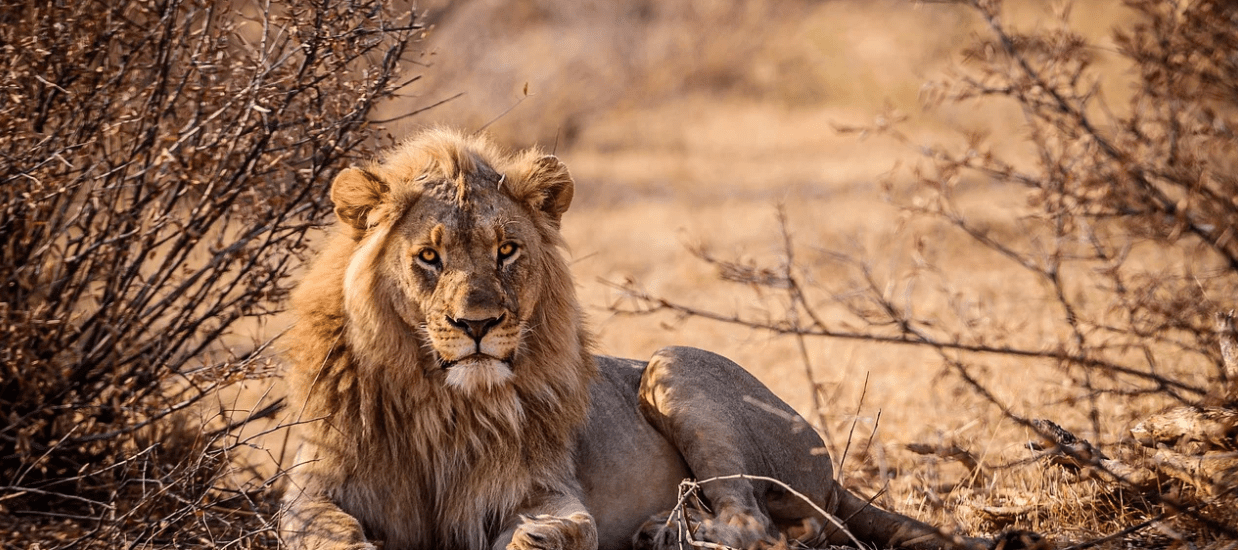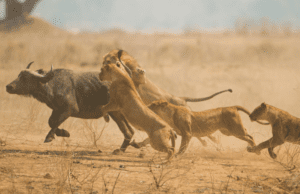The type of food available in the area where they live determines the animals they hunt. The bushveld, which lions prefer more than any other area, is home to many types of herbivores. Wildebeest, antelope and gazelles are their favorites. However, they also like wild boars. They have been known to wait in their dens for hours and have also been known to eat them. When a lion is hungry and can’t find the food it needs, it will eat whatever it finds. Although they could take down large animals such as buffalo or giraffes with great effort, it is a dangerous task that can be life-threatening. Many lions are injured while trying to control larger animals. An injured lion may not be able to participate in future hunts after such an encounter. Therefore, it would be best to check these out if you are curious about lion hunting methods.
Fundamental Method 
Lions hunt primarily in the dark. They can easily see their prey and follow them without fear of detection. It is common for lions to observe their loot, especially in the early morning hours, as they wait for the sun to set. They will wait until dark before launching an attack. As in the previous example, if there is strong moonlight in the landscape, they will wait until the night before attempting any hunt types. Their typical habitat is not covered, which is why they do this. Often, a lion may approach potential victims during the day but will then relent, allowing the prey to escape effortlessly. Lions that live in denser areas are more likely to hunt in daylight. Hunting that occurs in the daytime is also related to the activity and type of prey. When gazelles or zebras drink from rivers or lakes in the heat of the day, a hunting frenzy often ensues. Most lion stalking occurs after dark or in the middle of the night.
Senses and Deficits
Lions rely on their eyesight to hunt. Experts have observed them hiding under vegetation to follow an animal, sometimes sticking their heads out of the cover to see if the animal is there. However, sometimes they accidentally give themselves away in the process. Sometimes lions can hear their prey and follow it. Lions often respond to the sounds of animals moving or running through the water and will begin to investigate. In some cases, lions have used their sense of smell to hunt. However, lions tend to capture what they can see, so they are not as adept at tracking prey as wolves. Several herbivores can pass through a pack at any time of day, as lions tend to sleep during daylight hours.
Hunting Factors
Aside from their senses, there are other reasons why lions do not hunt like other predators. They have also familiar with their cover and let their scent precede the wind to alert their prey of potential danger. These glaring inefficiencies don’t matter, as pillage is abundant in most areas of their range. They kill one in fifteen gazelles, zebras, and other animals in the region. They have little impact on prey populations and do little to control their numbers. The number of herbivores killed by lions is one measure of the loss during the next drought. Many factors can compensate for lions’ inadequate hunting, such as large numbers of prey. Potential prey is still attracted to them despite their lack of attention. Other wildlife can detect the scent of lions in the area at certain times of the year, especially near water sources. It would be impossible for herbivores to pick up the odor of lions in these areas alone.








